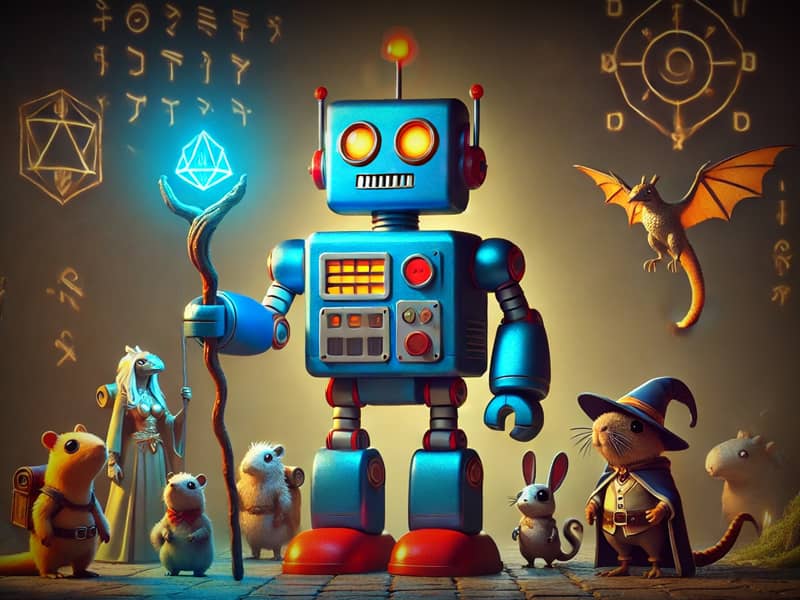Well met traveler!
Earlier this week, I paid a visit to a local Coworking facility where a fellow business owner and colleague asked me, "What's Werkbot’s secret to successful projects?" My answer was simple: it's all about having the right team with the right roles. Successful project teams in a marketing agency or web design firm function much like groups in games like Dungeons & Dragons or online multiplayer RPGs like World of Warcraft, EverQuest, Final Fantasy XIV and the list goes on. Each team member brings unique skills to the table, and when everyone plays their part, projects flow smoothly from one stage to the next.

In gaming, you'd never face a tough quest or lengthy adventure without a balanced team. You'd want a mix of Tank, Healer, Damage Dealers (DPS), and Support roles. In a project, a structured team with clearly defined roles is just as essential for success.
Project Team Roles
In high-stakes games, each role is vital. Here's how a project team can mirror those roles and classes. This is geared toward the Agency side of things, but here’s how we look at it:
Sales: Like the Scout or Initiator in games, Sales sets the stage by identifying opportunities and building initial momentum for the team. They're akin to a Hunter/Ranger or Rogue who scouts ahead to see what's lurking, gathering crucial information that prepares the team for what's to come.
Project Manager: The Tank of the team, project managers handle complex logistics, keep projects on track, and shield the team from unnecessary distractions. This is similar to a Warrior or Paladin class—steadfast and reliable, they stand at the forefront, absorbing challenges so the rest of the team can focus on their tasks.
Designer: Designers add creativity and clarity, much like the Mage or Wizard classes that use spells and visuals to bring concepts to life. Their work is both powerful and aesthetically pleasing, casting the "spells" that make the project visually compelling and engaging.
Developer: Executes technical tasks, bringing the project to life much like an Artificer or Engineer character who builds and invents. They are the architects and builders, constructing the frameworks and systems that make the project function effectively.
Account Manager: The Healer or Druid of the team, keeping the client's needs aligned with the project's progress and ensuring ongoing satisfaction. Much like healers who restore and maintain the party's health, account managers nurture the client relationship and address any issues that arise, often wearing multiple hats to support the team.
When each team member focuses on their unique role, the project flows smoothly and achieves high-quality results, much like a well-coordinated game team.
How Role Clarity Drives Project Success
Here are the core lessons project teams can draw from gaming:
Focus and Accountability
Defined roles mean each team member can concentrate on what they do best, with clear accountability that reduces overlap and missed details.
Efficient Communication
Knowing each other's roles allows team members to communicate effectively, directing questions or challenges to the right person and minimizing delays.
Adaptability
Structured roles enable project teams to handle changes easily, as each person knows their responsibilities and can pivot when needed.
Continuous Improvement
Like game teams that improve with practice, project teams build rhythm and understanding over time, leading to better outcomes and more cohesive teamwork.
Collaboration Over Competition
Project teams, much like gaming groups, achieve more through collaboration than competition. When everyone trusts their teammates to manage their roles, the team runs smoothly and shares in the success.
Additionally, web design and marketing agency teams can benefit from flexibility within defined roles. While each member has a primary focus, being able to support each other when needed strengthens the team's resilience and keeps projects on track.
Role Definition is Key to Project Success
Whether in a game raid or a marketing campaign, success depends on having the right people in the right roles. When each role is filled by someone with the appropriate strengths, projects are not only more efficient but also more rewarding for everyone involved.
If you're building or managing a project team, remember the lessons from gaming: assemble the right team members, give them defined roles, and let them do what they do best. This structure leads to more consistent project success and, ultimately, happier clients.


